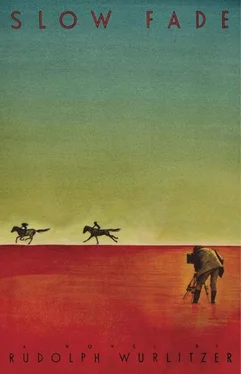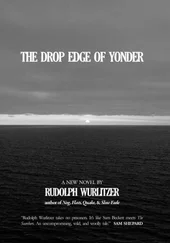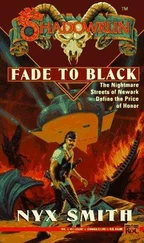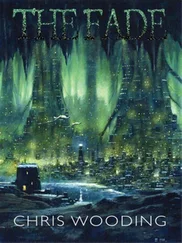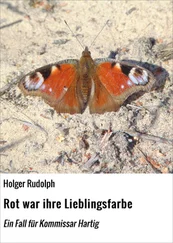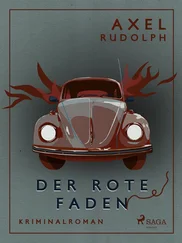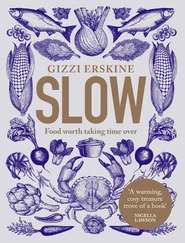He sat on the edge of the ravine until he couldn’t hear her any more and then as the day turned suddenly, almost brutally dark, he made his way back, his body shivering under stinging gusts of rain.
Long wasn’t there when he got back, and he built up the fire in the stove and dried himself off, hanging his clothes on the drying rack overhead. Then he went up the stairs once more and lay in the dark listening to the rain until sleep finally rescued him.
In the morning when he came down again Long Hatcher was sitting by the stove.
“Is there still a boat?” Wesley asked. “I’d like to go out in a boat for a short while.”
Long walked over to the highboy and took out a full bottle of rum. “For the boat. The best of the rest.”
Wesley made a pot of coffee and fried up some potatoes while Long returned to his chair and fell asleep, snoring loudly. After Wesley had eaten, he stepped outside and walked around the house. The house had been built and added to over the years with lumber taken from wrecked ships, and its joists and beams were all solid oak. Although Long hadn’t bothered to bank it, the foundation seemed firm enough. Wesley sat down on the front steps and watched narrow avenues of fog drift in from the sea. Once in a while the sun broke through, lighting up the frost-shattered rocks.
Long came out. He had put on wool pants and a yellow mackintosh and was holding the bottle of rum. Wesley went back into the house and returned with his down jacket and a black toque that he put on his head, and then he and Long walked down the steep hill into the town. A few figures nodded and called out but he didn’t recognize them. Fish had been washed and lay stacked on wooden racks waiting for the sun to dry them. Long stopped to take some squid out of a barrel for bait, wrapping it in newspaper. Then they walked halfway down the dock to the Angie D. , a wide-beamed dory with an open cabin. An old woman wrapped in a black coat sat against the Chevy motor in the middle of the boat, drinking coffee from a thermos.
“Get out of my fuckin’ boat,” Long stammered.
“I have a right to see Wesley Hardin,” she said calmly. “More than you, that’s for sure.”
They stepped down into the boat and Long primed the motor. The old woman ignored him, taking off her wire-rimmed spectacles and looking up at Wesley with a toothless grin.
“You don’t remember Annie Mae?” she asked.
Wesley didn’t remember.
“You and me and Long been down the river a time or two,” Annie Mae said knowingly. “We were in goddamn grade five together. Then there was that time we were swapping spit up at Huckle’s Point and old man Poultry come by, him that got caught on the ice in Thunder Bay.”
Wesley cast off and Long guided the boat slowly into the harbor. A loon flew over, disappearing into a pocket of fog, and then puffins and a razor-billed auk passed by. The boat cleared the harbor and they went past a line of breakers into the open sea. There was a gentle swell on, and they sat quietly as Long cut the engine and dropped anchor.
“You must be bringing TV to the Slab,” Annie Mae said as they set their hand lines with squid, jigging them fifteen fathoms down.
“Not me,” Wesley said.
Annie Mae chose not to believe him. “Heard you was bringing in twenty-eight stations. All from the States. I think you came back to the Slab to do just that and it’s a great thing and it’s what I come to tell you. I’m an old girl and when I can’t get about no more TV is goin’ to be my company. I ain’t goin’ to turn it off until they find me stiff as a salted cod.”
Annie Mae poured coffee from her thermos into tin cups and Long added large dollops of rum and they drank and waited for the fish. A migration of murres, looking like diminutive penguins, cackled maniacally as they flew past.
“You surely must be some wizard of wrong notions to come back to the Slab,” Annie Mae said. “Nothing here to do but die.”
“Nothing wrong with that,” Long said.
“You’re goddamn right.” Annie Mae shook her fist at both of them. “Take Wesley Hardin’s own grandpa. I was a little bitty thing, but I was there. Times was hard. Nothing to eat. Takin’ bets on who would make it through that winter. Now old Granddaddy Hardin knew he wasn’t worth a lick in hell. Never helped out. Never had nothin’ good to say about nobody. Was ugly to boot. Finally he seen the light. Got properly likkered up and commenced to go to each and every family. He had his tell on those he knew and they on him and everyone had to have their share of eating and drinking and passing out so it took more than three days and nights for everyone to wind up at the Hardin house. I know you recollect the night, Wesley, because you was right there when your own pa took a sealskin rope from a chest and threw it over that stringer you got running across the living room. Most all the town was looking when Granddaddy Hardin stood on a little table and put the noose around his own neck and said he’d done the best he could, take it or leave it, and that he looked forward to never seeing their goddamn faces again. Then his own son kicked the table out from underneath him and he swung free, dead as a stone.”
“That’s the way it was,” Long affirmed. “An April night and warm, too.”
“Course the TV will change all that,” Annie Mae said. “Different kind of entertainment going on now. Not many around knowing how to go out the old way.”
Just then the fish started to hit and they spent the next few hours laying in a quintal of cod. After they had rolled up their lines, Annie Mae split up two big tom cod, taking the airsacks and backbones out with swift cuts and throwing them overboard. She made a little fire over some rocks in the bottom of the boat and put the fish in a pot with fatback pork and onions and potatoes and cooked them in their own juice. When they had finished eating and were working on the last of the rum, a plane flew over, sliding down through the fog for a landing.
“Not a month goes by when you don’t see one,” Long complained.
Long lay down and fell asleep while Wesley and Annie Mae sat staring off across the sea, with their backs on opposite ends of the Chevy engine. It was very still and they were content just to sit there. Their peace was broken by a cool breeze that stirred up the swell and caused Long to wake up and start the engine.
Three hundred yards from the dock the fog lifted, and they could see the plane and a large crowd on the dock.
“God’s grace,” yelled Annie Mae. “It’s the TV folk come to plug us in.”
But it wasn’t the TV folk. It was A.D. and Sidney and another man working the sound. They were wearing new camping outfits and they had the camera on a tripod, pointing it toward the Angie D. like a weapon.
“I don’t want nothing to do with it,” Long said.
He sat down and it was left for Wesley to steer them in. He didn’t succeed, the bow slicing into the dock with a loud ripping sound and the boat immediately filling with water. The end of the dock collapsed and two people slid into the freezing water. Everyone else stood at the safe end of the dock applauding and calling out advice.
The camera crew continued shooting as Annie Mae and Long were helped out of the boat. Wesley got out on his own, crawling up on the dock on all fours.
“An historic approach,” Sidney said, zooming in on Wesley.
“We made the deal of a lifetime with Toulouse,” A.D. explained to Wesley. “He’s passed on the Indian project, but he’s picking up the entire tab on your footage. He thinks it’ll be a great film.”
“He’s not picking up my tab,” Wesley said.
“Your tab, everyone’s tab. It’s carte blanche.”
Читать дальше
